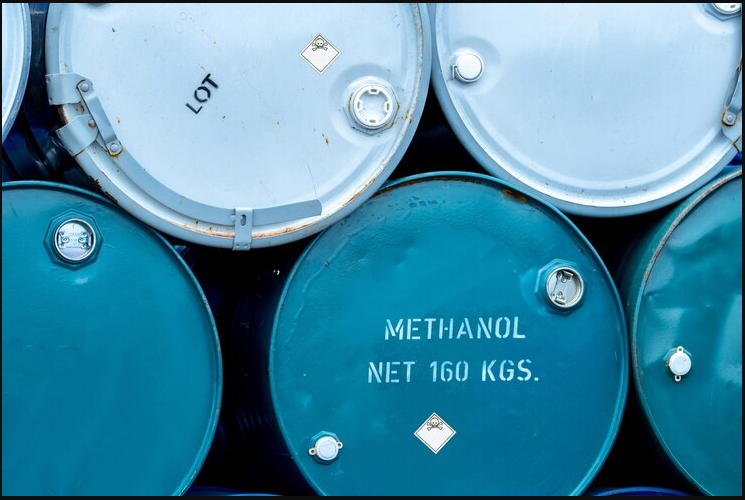
Chemicals
Methanol
Product | Methanol |
|---|---|
Packaging | 180 Kg Drums / Flexitanks/ Drum |
Price | Negotiable |
Payment Terms | Negotiable, T/T |
Delivery Terms
| FOB, CIF, CFR, CPT and FCA |
Min Order
| Negotiable |
HS Code | 290511 |
Methanol, also known as methyl alcohol, amongst other names, is a chemical and the simplest alcohol, with the formula CH3OH, (often abbreviated MeOH). It is a light, volatile, colourless, flammable liquid.
Methanol consists of a methyl group linked to a polar hydroxyl group. With more than 20 million tons produced annually.
it is used as a precursor to other commodity chemicals, including formaldehyde, acetic acid, methyl tert-butyl ether, methyl benzoate, anisole, peroxyacids, as well as a host of more specialised chemicals.
Methanol is used as fuel and as a solvent and as an antifreeze in pipelines and windshield washer fluid.
| Properties | unit | Specification | Analytical Test Method |
|---|---|---|---|
| Purity | % WT | 99.85 Min. | IMPCA 001-21 |
| Water | % W/W | 0.100 Max | ASTM E-1064 |
| Ethanol | % W/W | 0.0050 Max | IMPCA 001-21 |
| Specific Gravity 20/20 | C | 0.7928 Max | ASTM D-4052 |
| Acetone | W/W % | 0.0030 Max | IMPCA 0012-21 |
| Permanganate Time | Test @ 15 C , Minutes | 60 Min | ASTM D-1363 |
| Non Volatile Matter | Mg/1000 ml | 8 Max | ASTM D-1353 |
| Distilation range | @760 mm-Hg, C | 1.0 Max | ASTM D-1078 |
| Color Pt-Co | APHA | 5 Max | ASTM D-1209 |
| Carbonizable | APHA | 30 Max | ASTM E-346 |
| Total Iron | mg/kg | 0.10 Max | ASTM E-394 |
| Chloride as CI | Mg/kg | 0.5 Max | ASTM D-512 |
| Appearance | Clear and Free from Suspended Matter | IMPCA 003-98 | |
| Acidity as CH3COOH Hydrocarbons | % W/W | 0.0030 Max. Passes Test | ASTM D-1613 ASTM D-1722 |
| Sulphur | Mg/kg | 0.5 Max | ASTM D-5623 |
| Aromatics | UV Test | Passes Test | IMPCA 004-15 |
Questions? You’re covered.
Methanol can be used as a fuel in internal combustion engines, fuel cells, and as a blend in gasoline. It is considered a renewable energy source when produced from biomass or waste materials. Methanol fuel is used in vehicles, marine vessels, and power generation applications.
Methanol offers environmental benefits such as reduced greenhouse gas emissions and air pollutants compared to conventional fossil fuels. However, challenges include the energy-intensive production process, potential environmental impacts of raw material extraction, and safety concerns associated with handling and storage.
Methanol is toxic and flammable, posing health and safety risks if not handled properly. Safety precautions include using appropriate personal protective equipment (PPE), ensuring adequate ventilation in storage and handling areas, and implementing spill containment and emergency response procedures.





